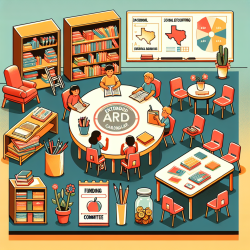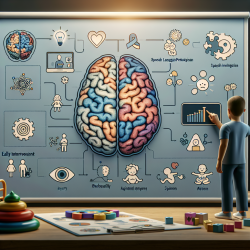Empowering Youth for a Brighter Tomorrow: Bridging the Agenda Gap
In the realm of youth mental health, bridging the gap between policy and practice is crucial for creating sustainable change. The research article "Assessing the impacts of the Agenda Gap intervention for youth mental health promotion through policy engagement: a study protocol" offers a promising approach to equip youth with the tools needed for meaningful policy engagement. This blog explores how practitioners can leverage these findings to enhance their skills and contribute to better mental health outcomes for children and adolescents.
Understanding the Agenda Gap Intervention
The Agenda Gap intervention is an innovative, multimedia engagement strategy developed in collaboration with youth. It aims to build capacity among young people, enabling them to lead policy changes that reflect their mental health needs. The intervention is designed to be inclusive, particularly focusing on youth who experience structural vulnerabilities and whose voices are often underrepresented in policymaking processes.
Key Components of the Intervention
The intervention consists of 11 weekly capacity-building sessions, each lasting 2 to 3 hours. These sessions cover a range of topics, including:
- Mental health promotion literacy and the social determinants of mental health
- The role of resilience in supporting youth action
- Youth rights and policy change priorities
- Understanding policy impacts on everyday lives
- Campaign development and policy engagement skills
These sessions are co-facilitated by youth and adult mentors, ensuring a supportive environment for participants to engage with stakeholders and policymakers.
Implications for Practitioners
Practitioners in the field of speech-language pathology and online therapy services, such as those at TinyEYE, can draw valuable insights from the Agenda Gap intervention. By integrating these strategies into their practice, they can enhance their ability to support youth in navigating mental health challenges. Here are a few ways practitioners can apply these findings:
- Incorporate Policy Education: Educate youth about the impact of policy on mental health and empower them to advocate for change.
- Foster Resilience: Use resilience-building activities to help youth develop coping strategies and a sense of agency.
- Engage in Collaborative Practices: Work with youth to identify community-specific mental health challenges and co-create solutions.
Encouraging Further Research
The Agenda Gap intervention highlights the importance of evidence-based strategies in youth mental health promotion. Practitioners are encouraged to delve deeper into this area of research, exploring how policy engagement can be integrated into their practice to create more effective interventions. By staying informed about the latest findings, practitioners can continue to refine their approaches and contribute to the broader mental health promotion agenda.
To read the original research paper, please follow this link: Assessing the impacts of the Agenda Gap intervention for youth mental health promotion through policy engagement: a study protocol.










